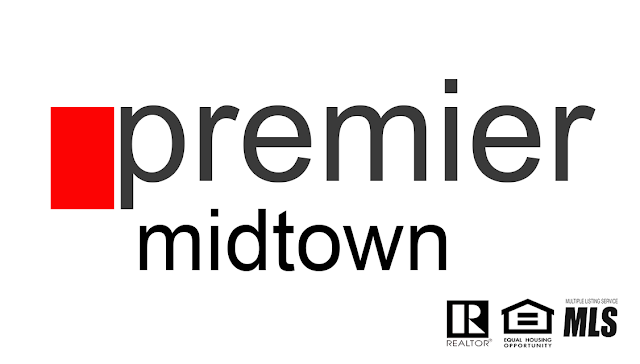How to Prepare Your Home for Winter in Sacramento
The long and sunny days of summer have come to an end, with the last notably hot day in Sacramento being toward the end of September. The autumn rain came right on time this year compared to past fall seasons in which we had summer encores of hot days that didn't go away until early November! It appears that Northern California is getting more of an average fall season this year, which may even be a sign that the long-term drought could be winding down as the much-needed precipitation helps replenish the water tables and reservoirs in the Central Valley. In short, we might be able to keep our lawns green again, amiright?
 |
| Yeah, you remember this stuff, don't you? |
 |
| Pictured: Venice, CA in the dead of winter. |
 |
| Here it is: the number one threat posed by winters in Sacramento - falling water! |
Check the windows for cracks and old seals. Replacing them with double pane windows is ideal to save on heating (and cooling) costs down the road. Go around your house (easiest if one story, but can be done for two story homes with an extension ladder, using caution) and check each window, as cracks and worn out seals are usually easy to spot. There are ways to patch cracked windows temporarily if replacing them is out of the budget at the moment, but it is not recommended to use this Band-Aid method for more than one winter season, as moisture and mold have the potential to build up between dual panes of glass.
Trim the trees around your house, and even consider removing any old trees that look like they don't have another winter left in them so they don't drop branches or even fall over in strong winds, or land on power lines, in neighboring yards, on cars, or even people and pets. Also give the front and back yards a round of fall cleaning so that everything looks good, and any issues that could come up due to overgrown vegetation or broken fence boards, etc. can be dealt with before the heavy rains arrive. There's nothing more annoying than having to try to fix something when it's been pouring rain for two weeks straight (again, in non-drought times).
Flood preparedness. If you live near a river or in one of Sacramento's flood plains, be sure to obtain FEMA's emergency preparedness guide (download here). It contains lots of different things to be prepared for, but at least be familiar with what to do in a flood situation. As long as you have homeowner's insurance, which you probably were required to get anyway if your home is in or near a flood zone, then don't sweat the potential damage to your house, since that's what the insurance is for. Just make sure you know how to evacuate your family to safety with a basic preparedness plan. If you check the history of catastrophic floods in the Sacramento area, you will have a hard time finding any recent headlines, but it never hurts to have a plan for floods and other natural disasters, particularly because the ones Sacramento can have which involve water tend to be more of a risk in the winter.
Clean the chimney, if you have one. Santa will thank you, if you celebrate Christmas, and the atmosphere will thank you, regardless. It will also ensure no debris is stuck in the chimney that could cause blockage or catch on fire. Adding a spark arrestor at the top if you don't have one will help you stay safe (and compliant in areas that require one anyway). If you use a gas fireplace, test out the fireplace and be sure that you don't smell any gas leaks. If you just moved into a home with a gas fireplace, make sure you read up on how your fireplace unit works to be extra safe and not have any delays when it's cold and you don't want to have to experiment for the first time.
Make sure the stove is working properly. Electrical stoves are a little easier; just make sure each of the coils and the oven (and microwave, if equipped) are working properly, are clean, and don't smell funny. For gas stoves, it's important to make sure you don't smell any propane leaks. If you smell a little bit of propane, it could either be a loose connection (most likely if a newer stove - make sure the connections are tight and seated properly), or a worn out old hose if an older stove. You can either shut off the gas and replace the hose yourself, or have a professional check out the entire gas line at your house if you suspect the leak could be in the wall or elsewhere that you can't access to safely repair. Also, whether or not you will only use your home's central heater to keep the house warm (or wall heater units, in older homes), make sure you have all heating units inspected if over ten years old. For newer units, just change the air filters throughout the house after a summer of running the A/C to ensure clean air that doesn't smell bad (you can even buy those scented filters that smell like evergreen trees if you want!)
We ran out of stock pictures, but here are some additional things to consider:
Make sure you don't have any electrical or plumbing issues to take care of. When it's warm outside and it stays light until 8PM, it is much easier to put off lighting and air conditioning or water heating troubles than it is when its cold and raining outside, and dark at 5PM. If you have an old water heater unit, it pays to have it inspected as well. The same goes if you have any water filtration or softening units. If you live in a rural part of the Sacramento area and have a well and/or septic system, early fall is a great time to get both systems checked out. For those of you who've lived in a remote area before, you may already know from experience how a failed well pump that can't be looked at until after a four day holiday weekend can dampen your holiday cheer! Last of all, it pays to have flashlights and other battery-powered light sources and/or candles throughout your home, as power outages happen when the weather gets stormy, but flashlights can make the experience easier. If you use SMUD for electrical service, they even send notifications to your phone in the event of power outages.
For more ideas of how to winter-proof your home this fall, consult your homeowner's insurance company. Looking to become a homeowner before winter arrives? The end of the year is traditionally the slowest time for real estate sales, thereby allowing some bargaining power in making an offer on the homes available. If you were considering buying a home anyway, then winter is a great time to get a deal (inventory levels are lower, but there are still plenty of possibilities). Call Premier Midtown Realty today for more information on buying a home: (916) 502-0953. (Ok, fine, we won't throw in the tagline pun of "Where great service is always in season!" The random cop from the Monty Python sketches would appear and take us away. Far too silly!)
Premier Midtown Realty: "Your Partners in Midtown Sacramento & Central Valley Real Estate!"
Ryan Wagner, California Real Estate Broker. CA BRE license # 01968073.

























